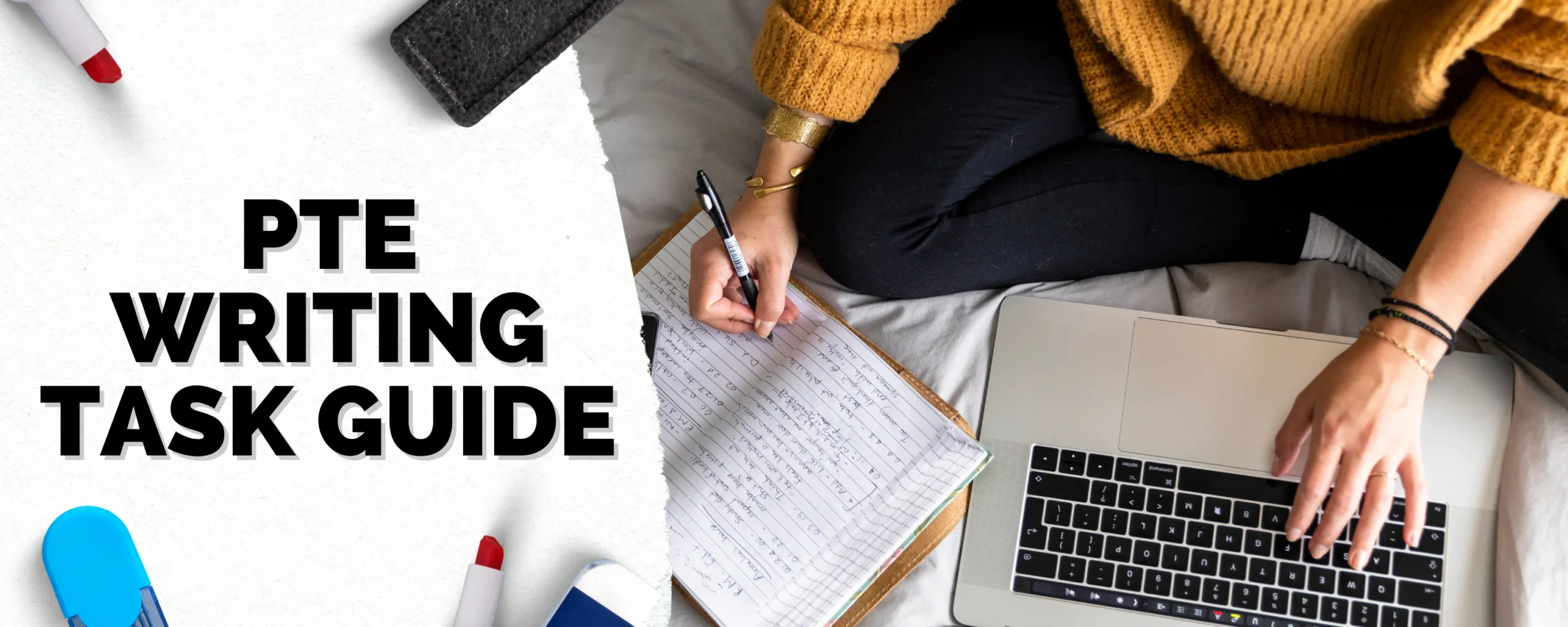The Pearson Test of English (PTE) is a widely recognised English language proficiency test used for study, work, and migration purposes. It evaluates your skills in reading, writing, listening, and speaking. The test’s academic nature makes it essential to have a well-structured preparation plan, and study guides play a critical role in this process. Whether you’re a first-time test-taker or aiming to improve your previous score, selecting the right study guide can significantly impact your performance.
Importance of Choosing the Right PTE Study Material
Choosing the right study material is not just about gathering books or resources; it’s about finding the ones that align with your learning style, strengths, and weaknesses. The right study materials:
- Enhance Understanding: Quality guides break down complex concepts into simpler explanations, making it easier to understand the exam’s requirements.
- Build Confidence: With practice questions that mirror the actual test, you become familiar with the test format, reducing anxiety.
- Save Time: Instead of sifting through irrelevant content, good study guides focus on what’s essential, helping you study more efficiently.
- Provide Structured Learning: They offer a step-by-step approach, guiding you through each section of the PTE with clear objectives and milestones.
- Boost Your Score: Ultimately, the right guide can be the difference between an average score and achieving the level you need for your goals.
Types of PTE Study Guides Available
PTE study guides come in various formats, each catering to different learning preferences:
1. Official Study Guides:
- These are directly produced by Pearson, the creators of the PTE. They offer the most accurate representation of the test and include official practice tests, tips, and a detailed breakdown of each section.
- Examples: The Official Guide to PTE Academic, PTE Academic Official Practice App.
2. Third-Party Books:
- These guides are created by reputable educational publishers and often include a mix of practice questions, tips, and strategies. They might offer alternative methods to tackle different question types.
- Examples: PTE Academic Practice Tests Plus, The PTE Academic 79 Plus.
3. Online Courses:
- Online platforms offer interactive courses that include video lessons, practice tests, and real-time feedback. These courses are often designed to cater to both beginners and advanced learners.
- Examples: E2Language, PTE Tutorials.
4. Mobile Apps:
- For on-the-go learning, mobile apps provide convenience. They often feature quick practice questions, flashcards, and tips, making it easier to study in short bursts.
- Examples: PTE Prep, PTE Academic Official Practice App.
5. Free Resources:
- Many websites and forums offer free PTE preparation resources. While these can be useful, the quality and relevance of the content may vary.
- Examples: Test taker forums, YouTube tutorials.
Evaluating the Quality of PTE Study Guides
Not all study guides are created equal, so it’s crucial to evaluate their quality before investing time and money. Key factors to consider include:
- Up-to-date Content: PTE exam formats and content can change. Ensure the guide reflects the latest information, question types, and scoring criteria.
- Reputation of the Author/Publisher: Trusted authors or publishers with a history of producing quality educational materials are usually safer bets.
- User Reviews and Testimonials: Reading reviews from other PTE test-takers can provide insights into the guide’s effectiveness, usability, and reliability.
- Depth of Content: A good guide should comprehensively cover all sections of the PTE, including strategies for each type of question.
- Practice Tests: High-quality guides offer full-length practice tests that mimic the actual exam’s difficulty and format, helping you gauge your readiness.
Key Features to Look for in a Study Guide
A well-rounded study guide should include several key features to enhance your preparation:
- Detailed Explanations: Each practice question should be accompanied by a detailed explanation of the correct answer, helping you understand where you went wrong and how to improve.
- Practice Questions: The guide should offer a wide range of practice questions that cover all possible topics and difficulty levels you might encounter in the exam.
- Test-Taking Strategies: Tips on how to manage your time effectively, handle difficult questions, and maintain focus during the test are essential for maximising your score.
- Score Analysis: Tools or methods to help you track your progress, understand your strengths and weaknesses, and adjust your study plan accordingly.
- Digital Resources: Access to online content such as videos, additional practice questions, interactive exercises, or even an app version of the study guide for learning on the go.
Balancing Online and Offline Study Resources
Balancing online and offline study resources ensures a well-rounded preparation strategy. Both methods offer unique benefits:
- Offline Resources: Printed books and materials are great for focused study sessions without the distractions of online notifications. They also provide a tactile learning experience, which some learners find more effective.
- Online Resources: Online resources are dynamic and can be updated regularly to reflect the latest exam formats. They often include interactive content like videos, quizzes, and forums, which can help reinforce learning through different media. Online courses also offer the benefit of learning at your own pace, with some providing real-time feedback from instructors.
By combining both methods, you can take advantage of the depth of offline resources and the flexibility and up-to-date content of online materials.
Recommended PTE Study Guides by Experts
Experts often recommend study guides based on their comprehensive coverage, realistic practice tests, and effective strategies. Here are some top recommendations:
1. The Official Guide to PTE Academic:
- Directly from Pearson, this guide provides a thorough understanding of the test format, along with official practice questions and scoring guidelines.
2. PTE Academic Practice Tests Plus:
- This book offers authentic practice tests with detailed explanations, helping you to understand the reasoning behind each answer and learn effective test-taking strategies.
3. The PTE Academic 79 Plus:
- Aimed at those targeting high scores, this guide includes advanced strategies and challenging practice questions to help you push past the 79 mark.
4. E2Language PTE Preparation Course:
- An online course that offers video lessons, practice tests, and live classes with experienced instructors, providing a comprehensive preparation experience.
5. PTE Tutorials:
- Another online platform that provides a range of study materials, including mock tests, video lessons, and a personalised study plan based on your diagnostic test results.
Customising Your Study Plan with the Right Material
To get the most out of your study guides, it’s essential to customise your study plan. This means assessing your current proficiency, identifying your strengths and weaknesses, and selecting materials that address your specific needs.
- Diagnostic Tests: To begin your preparation, take the diagnostic exam. This will help you understand your current level and identify which areas need the most attention.
- Focused Practice: Use guides that provide targeted practice in areas where you are weak while maintaining a balanced review of all sections to avoid neglecting any part of the test.
- Regular Practice Tests: Incorporate regular practice tests into your study schedule to simulate exam conditions, track your progress, and adjust your study plan as needed. These tests also help in building stamina and confidence.
Free vs. Paid PTE Study Guides: Pros and Cons
When deciding between free and paid study guides, consider the following pros and cons:
Free Guides:
- Pros:
- Cost-effective, allowing you to access basic study materials without financial strain.
- Accessible from various sources like websites, forums, and YouTube, offering a wide range of content.
- Good for initial exploration or supplementing paid resources.
- Cons:
- Quality can vary widely, with some resources being outdated or incomplete.
- Limited in-depth analysis and fewer practice tests compared to paid guides.
- May lack structured learning paths, leading to a disjointed preparation experience.
Paid Guides:
- Pros:
- Comprehensive coverage of all test sections, often including multiple practice tests, detailed explanations, and advanced strategies.
- Regularly updated content to reflect the latest exam patterns and scoring criteria.
- Often come with additional resources such as online access, apps, or tutor support.
- Cons:
- Can be expensive, so it’s essential to choose wisely to ensure you get value for your investment.
- May be overwhelming with the amount of content provided, requiring a disciplined approach to use effectively.
Real-life Success Stories with Different Study Guides
Hearing from others who have successfully navigated the PTE exam can provide valuable insights and motivation. For instance:
- Case Study 1: A test-taker who used the Official Guide to PTE Academic alongside PTE Academic Practice Tests Plus managed to improve their score from 65 to 80. They attributed their success to the combination of detailed explanations in the official guide and the challenging practice tests in the Practice Tests Plus book.
- Case Study 2: Another test-taker opted for an online course with E2Language. They found the video lessons and interactive quizzes particularly helpful, allowing them to study flexibly around their work schedule. Their score increased significantly, particularly in the speaking and writing sections, which they initially struggled with.
- Case Study 3: A student used free resources for their initial preparation but switched to a paid guide after struggling with consistency and depth. The structured approach of the paid guide helped them focus their study efforts more effectively, leading to a higher overall score.
Common Mistakes to Avoid When Selecting Study Guides
Selecting the wrong study guide can derail your preparation efforts. Avoid these common mistakes:
- Ignoring the Official Guide: The official guide is produced by the test creators and provides the most accurate representation of the exam. Skipping it can result in missing out on essential insights.
- Overloading with Resources: Using too many different guides can lead to confusion and fragmented learning. It’s better to choose a few high-quality resources and stick with them.
- Choosing Outdated Material: Always check the publication date of your study guides. Outdated materials may not reflect the current exam format or content, leading to gaps in your preparation.
- Skipping Reviews: Before purchasing a study guide, read reviews or ask for recommendations from other test-takers or instructors. This can help you avoid wasting time on ineffective or low-quality guides.
- Neglecting Practice Tests: Practice tests are crucial for familiarising yourself with the exam format and timing. Ensure your study guide includes or recommends plenty of practice tests.
Conclusion
Choosing the right PTE study guide is crucial for effective preparation. By understanding the different types of guides available, evaluating their quality, and customising your study plan to your needs, you can maximise your chances of success. Balance online and offline resources, consider both free and paid options, and learn from the experiences of others to make the best choice for your PTE prep. Ultimately, the right study guide can help you achieve the score you need to reach your academic, professional, or migration goals. For PTE Exam Preparation Course, consider joining La Forêt Education, your trusted partner in achieving your language proficiency dreams.





